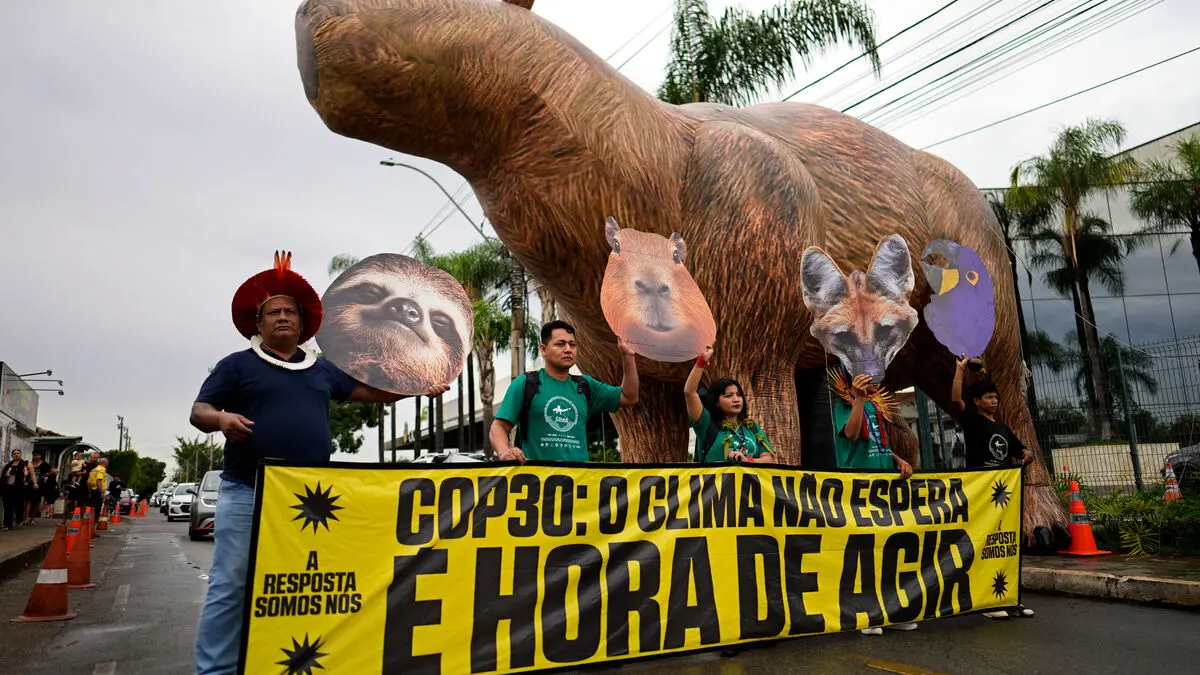1. The most important thing is off the agenda
The negotiation agenda is not the most important thing at this year's climate summit - the focus is rather on what will be implemented.
The focus should probably be on what is happening a little outside the negotiations, i.e. how is the climate work going? says Mathias Fridahl, an expert on climate policy and assistant professor at Linköping University.
This year's meeting will see a reconciliation of countries' climate commitments, the so-called NDCs. Despite the deadline being in February, the majority were not ready even close to the meeting. The EU managed to agree on its climate goals with less than a week to go.
Overall, there is a large gap between the level of ambition for emissions reduction and what the UN climate panel believes is needed.
But the NDCs are not a separate agenda item. It is likely that some countries will still try to get topics related to them on the agenda.
According to Sweden's chief negotiator Mattias Frumerie, the EU wants the NDCs to be included in a decision text.
The best thing would be if they could become a call to other countries to use solutions that, for example, Swedish companies can offer, he says.
He also sees that the focus is on doing.
We don't need more goals, we need to implement and support each other in how.
.
2. Host country with climate profile
Brazil's hosting is seen as a welcome development after recent years of climate meetings in countries whose economies are largely based on fossil fuels. There is a genuine public opinion in favor of climate and environmental work, which is also reflected in the way the conference is organized.
One example is that this year's COP has been held in Belém, a gateway to the Amazon, as a symbol of how important the Amazon is for climate and environmental work.
This, in turn, has led to another of the year's big talking points. . .
.
3. The housing crisis
A shortage of hotel rooms and sky-high prices have led many to consider whether participation is worth the price. In October, Latvia announced that it would not send a delegation. Sweden's delegation is about six people smaller than last time and the accommodation situation is said to have played a role.
Civil society actors are hardest hit, with many forced to admit that it will be too expensive. The only group expected to participate to a greater extent than usual is the indigenous people of the Amazon region.
.
4. Will climate work survive without the USA?
The US made its climate pledges early, but they were made under the previous administration and are considered to be of little importance. Since then, the US has left the Paris Agreement and significantly backed down on its climate work.
According to Mathias Fridahl, there is no general trend away from climate work or that more people are leaving the Paris Agreement, but one can discern increased caution.
I don't see a general trend to backtrack drastically from current climate goals, but there are such signals as well. For example, there are within the EU regarding forests and in Sweden we can see it regarding transport.
.
5. Financing
Last year's biggest issue was financing, and it remains of great importance. There are suggestions from some countries that it should be added as a separate item.
From the EU, we believe that no more points are needed and the financing issue is already being discussed in several of the others, says chief negotiator Mattias Frumerie.
.
Bubbler:
The EU's carbon dioxide tariffs (CBAM) are considered by many countries outside the EU to be protectionism rather than climate policy and could be an issue to keep an eye on during COP30.






